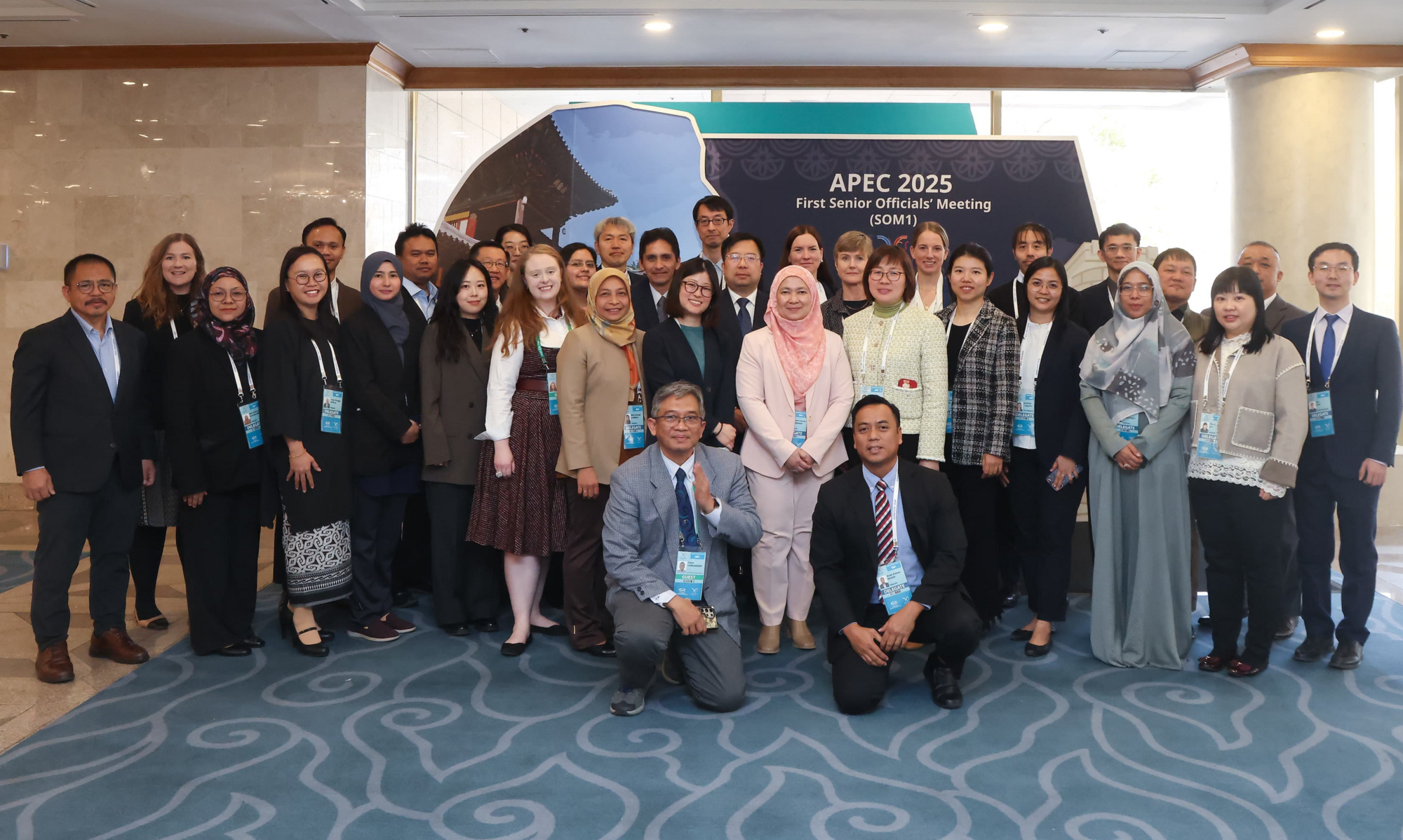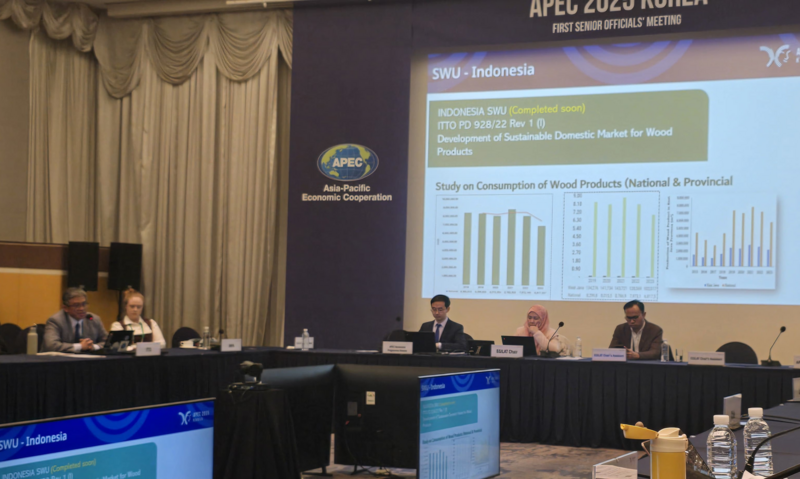Sustainability and legality go hand in hand, ITTO tells APEC illegal logging experts
28 February 2025, Gyeongju

Experts on illegal logging and its associated trade gather in Gyeongju for the 27th APEC EGILAT meeting. Photo: APEC Secretariat
Advancing sustainable forest management (SFM) and countering illegal timber harvesting in tropical forests go hand in hand, as embodied in ITTO’s promotion of legal and sustainable supply chains, the Organization stated at a gathering of experts on illegal logging.
Projects Manager Tetra Yanuariadi presented ITTO’s progress on the programme line on Legal and Sustainable Supply Chains (LSSC) during the 27th plenary meeting of the Asia-Pacific Economic Cooperation Expert Group on Illegal Logging and Trade (APEC EGILAT), held in Gyeongju, Republic of Korea, from 26 to 28 February 2025.
The implementation of the ITTO programme line is based on increasing the understanding and uptake on forest legality and sustainability, Dr Yanuariadi said. Meeting those requirements counters the negative impacts of illegal practices in the management of tropical forest resources. A key element of sustainability is legal compliance, and timber producers face growing requirements to provide evidence of legality for their products, he noted.
Noraihan Abdul Rahman, EGILAT Chair and Chief Executive Officer of the Malaysian Timber Council, said balancing economic benefits from forests with conservation is challenging, especially with pressures like urbanization and food insecurity.
However, without tackling illegal logging and trade, it will be impossible to achieve a sustainable and a fair balance between trade development and environmental protection, she told delegates from the APEC EGILAT economies.
At the meeting, Dr Yanuariadi also provided an update on ITTO’s efforts to support the use of sustainably produced tropical timber in the domestic markets of member economies through projects implemented in Viet Nam, Thailand, and Indonesia.

The projects, one of which (in Viet Nam) has been completed and the other two are nearing completion, involve enhancing national strategies and policies on timber production and timber product trade, improving production capacity, building the capacity of community forestry enterprises, diversifying the range of wood products, and raising consumer awareness about the advantages of wood products.
Dr Yanuariadi said that the three projects, all of which received funding from the government of Japan, have delivered outputs that are aligned to their targets.
He also noted that ITTO has begun implementing a project to tackle illicit trade, deforestation, forest degradation, and loss of food security in Thailand near the border with Myanmar.
The aftermath of the 2021 coup in Myanmar has driven thousands of people into Thailand's border areas, particularly in Tak and Mae Hong Son Provinces. The influx has led to escalated and large-scale deforestation, and hence, a surge in illicit trade as well as loss of food security and livelihoods for vulnerable communities in the region.
The project's planned outputs include a robust monitoring system to assist local authorities and communities in monitoring forest loss and degradation using satellite and drone data and enhancing the capacity of local authorities, community groups, and youth in community forest protection and sustainable livelihood development.
“We know that achieving ITTO’s mission is a big undertaking. And we know that we cannot do this alone”, says ITTO Executive Director Sheam Satkuru. “ITTO is fully committed and is proactive in engaging and cooperating with APEC and many other bodies, to further strengthen our partnerships towards the goal of achieving both SFM and sustainability and legality of timber trade”, she added.